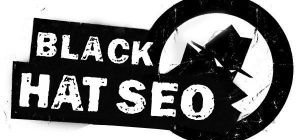
The internet is a wonderful place for drumming up business. Unfortunately, it’s not simply a case of creating a great website and waiting for the traffic to come in. Each page on your site needs to be SEO friendly.
But that’s easier said than done. There is so much information out there on SEO that it can be a little intimidating in the beginning.
We’ve come up with a complete guide to help you set up an SEO friendly page minus the confusion.
What is an SEO friendly page? And why do I need one?
SEO, or Search Engine Optimisation, is basically a set of rules that, if followed, set a page up to rank highly in the search engine results. An SEO friendly page is simply a page that follows those rules in order to climb up in the search engine rankings.
For a reason as to why it’s so important for your page to rank highly in the search engine results, just think about when you perform web searches yourself. Most likely you gravitate towards the top results on the first page. You probably don’t stray far from that first page, if at all. And that’s true of most of us. Meaning the higher up in the search results you can climb, the more traffic you’ll get.
Simply put. If your page isn’t SEO friendly, it will rank poorly in search engine results. And if it doesn’t make it onto the first few pages, no one will ever find it.
On-site SEO
We’ll start at home. What do you need to factor into your own website for great SEO?
Keywords

Yet another term you’ll be familiar with. A keyword or phrase is a word or phrase that describes the content of a web page. They are also the terms that people looking for information online will likely type into the search box.
By including keywords and phrases across your content, you are helping search engines to match up your page with internet users searching for related information.
One of, if not the, most important part of creating an SEO friendly page, is choosing the right keywords to focus on. The ones that will attract not only the most visitors to your page but the right visitors.
The best way to do this is to perform some kind of keyword research, for which there are many tools out there. But there are a few things for you to keep in mind.
It’s easy to make the mistake of going too general with your keywords. But this may not work in your favour. For one, it will likely leave you with a huge amount of competition to contend with. And big brands often have SEO experts working hard round the clock to defend their rankings for such keywords.
You may find that optimising for more specific phrases stops your page from getting completely lost amongst the throngs of information out there.
If you are hoping to increase traffic in the hopes of increasing sales of a certain product, then focusing on more specific phrases will attract visitors that are more ready to be converted into customers. Those browsing the general terms are doing just that, browsing. They’re not ready to buy.
Although a general keyword might be ideal for driving up the quantity of traffic to your page. Provided you can beat the competition and find yourself at the top.
A more specific term could be easier to conquer and leave you with a better quality of traffic (the kind that knows what they want and is ready to spend money on it).
Less is more
When we think SEO, the majority of us think ‘keywords’. And many make the mistake of cramming as many keywords and phrases into their content as they can. Regardless of whether it sounds natural or not. There are a few reasons as to why this is a terrible idea.
- Google has introduced a penalty for sites that have pages stuffed with too many of the same keywords.Also, if the same words appear time and time again on a page, it does not read well and visitors to your website will immediately see your content for what it is.
- Stick with no more than 3 to 5 keywords or keyword phrases per page (at the very most) and concentrate on those.
Title tag
Every page has a title tag. This is the headline that people will see not just in the search results, but across the internet including social media. That means it needs to be enticing. It needs to include your most important keyword or phrase, and any branding. Only the first 70 characters will be shown. Make sure your most important keyword phrase displays in the front part of the title tag.
Meta tag description
This is a short description of what the page is about. It appears underneath the ‘title tag’ in the search results.

This should be to the point (under 160 characters). In the form of an actual readable sentence (not just a list of keywords with no explanation). And contain keywords/phrases. Although Google doesn’t include the meta tag description in its rankings, it does highlight the words that match the search term, which in itself encourages people to click through.
Main heading or H1 Heading
The H1 tag has always been an influential ranking factor for most search engines. It gives the search engine an idea on what the page is all about. In most cases, you need to use your main keywords in the H1 tag. (similar to the title tag)
Subheadings or H2 Headings
Subheadings not only improve a page’s readability by chopping the text up into bite-size pieces. They also do the same for search engines. They help Google to gauge exactly what your page is about.
Internal links
We’ll talk about link building later on. But most of you will have heard the term. And while it usually focuses on external link building, you can (and should) build internal links too. This is when you link from your page to another page on your own website.
Doing this helps search engines to come to the conclusion that your site as a credible source of information on the topic at hand. It does this by saying ‘Look! We have more relevant information on this same topic right here on this website’.
It can also boost the rankings of a page. Say you already have a page on your site that has established authority in your field. You can place a link to a lower ranking page elsewhere on your site to spread some of that ‘link juice’ to that page.
Just keep it relevant. No linking to pages completely unrelated to the current one. And restrain yourself when it comes to numbers. Don’t include too many links on the same page.
Off-site SEO
How can you encourage other sites to boost the SEO of your page?
Link building

This is where we get to link building. Link building is the process of getting other websites to link to your page. You want this to happen because the more website backlinks you have, the more credible your page will look to search engines. The more credible they think you are, the higher your page will appear in their rankings.
But not all links are equal. And the good ones are not easy to get. Many businesses choose to purchase a link building service to help them boost their SEO because doing it yourself can be such a tough job.
Types of links
Organic editorial links
The holy grail of links. This is when a website links to your page unprompted. They are at their most valuable when given by very well known, high-ranking sites.
They are also the most difficult and time-consuming, to achieve. In order to get websites to start linking to your page without being asked, you will need to catch enough people’s attention with your amazing content. So you need to make amazing content and get it out there.
When creating content for your page, consider the type of pages that are frequently shared. Infographics are a great example of informative yet entertaining share-worthy content.
Because it is, understandably, a near impossible feat right off the bat, this type of link may come at a later stage. After you have first generated a few manual links to get the ball rolling.
Manual links
Manual links are the most common. And are the links that you ask for. If you’re new to link building, or SEO in general, then this is the natural starting point.
In order to generate manual links, you will need to hone in on blogs or websites that rank well and have authority in your field of expertise. And reach out to them asking for a link to your page (with a compelling reason hopefully).
For example, you may decide to reach out to a blog in your industry offering them a quality guest post in return for a link to your page.
Non-editorial links
This is a link that you post yourself elsewhere on the web. It can include links in blog comments or forums or article directories. In general, they are the least valuable, and in some cases, may even be penalised by search engines.
Although they may help SEO for some pages in some circumstances, they are pretty much frowned upon.
Creating a high-quality, SEO-friendly page is hard work. But in an ever-changing digital world, it pays to be at the top (of the search engine results).







